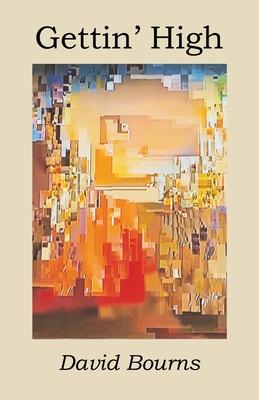The stories in Gettin' High take place mainly in New York City and Puerto Rico, though three are set in rural Michigan where the author grew up. They transpire during the turbulent decade of the 1960s. As the title suggests, many characters smoke weed and experience its eerie and pleasurable effects. That is one current running through several stories, though not a major theme. Rather, the thematic anchor is the search for love and meaning in a changing, transient world.
The characters are generally involved with music, as performers or students, and what it means to become a professional musician. Music as a means to communicate truly with another person is also an important facet of the plot lines in the stories, whether this is on a river tour or on a formal concert stage, and the characters strive to find the essence of their art in various ways. Of course, music goes beyond words, and this musical quest is what propels many of the characters' lives and loves. Also, the real-life business of music is another salient aspect for character development.
Three of the stories are set in the rural landscape of the author's youth. Here the theme of the demise of the family farm is set forth against the backdrop of the long transition from an agrarian to an urban life style which has taken place throughout the 20th century.
All of the stories in Gettin' High were written many years ago while the author himself was working as a professional musician in the Puerto Rico Symphony. As such, they may seem somewhat dated, since this was a time before iphones, the internet, TikTok and social media. People actually needed to communicate more directly with one another, in a more intimate fashion. And this is reflected in the plots and dialogue of the stories. The roles of men and women were also, for better or worse, more rigidly defined. And this perspective undoubtedly finds its way into the portrayal of the characters as they seek to explore new boundaries and experiences--from the farm to the concert stage to smoking weed--a long trajectory set against the backdrop of the Vietnam war.
Though these stories were mostly written over 50 years ago, the author believes that they are still relevant in today's world. The subject of abortion figures in A Love Story as well as interracial love. Also, a forgotten incident of child abuse rears its head in The Hermit as well as performance anxiety in The Recital. The racism still lingering in the South of the early 1960s, and which America is still struggling to truly confront, plays a role in Milly-A Fantasy. And undoubtedly, the transformative potential of music has not diminished over the years--whether it be jazz, the folk music of the 1960s, today's Hip-Hop and Rap or the classical music of the formal, concert stage. Humanity still seems to thrive on music's inherent message of hope and its curative power. Finally, it is the author's hope that, at the very least, readers will find something of themselves in the characters of these tales as they seek out life's ephemeral joys, happiness and fulfillment in today's challenging world.
